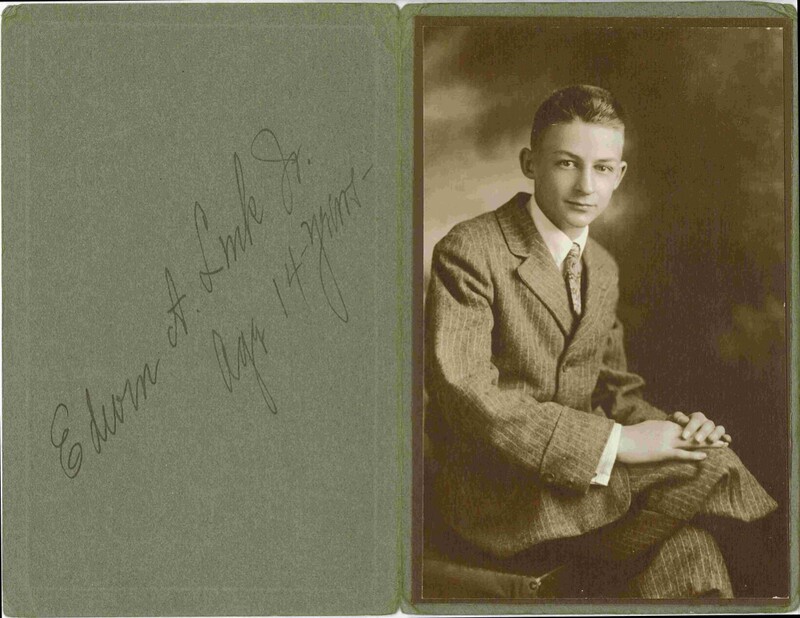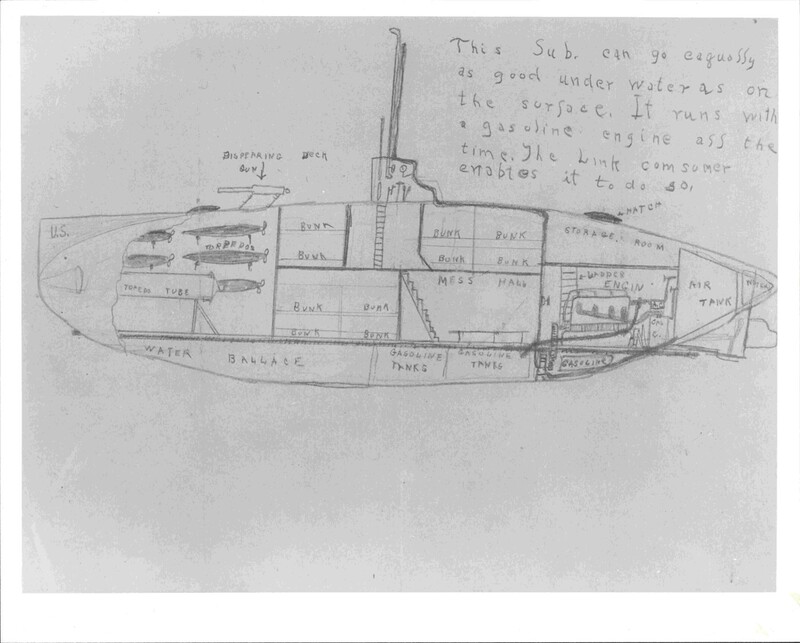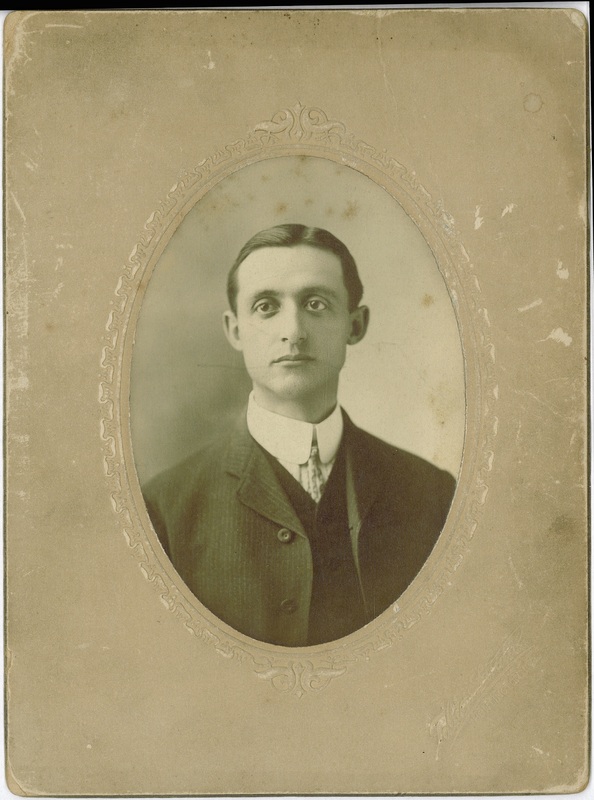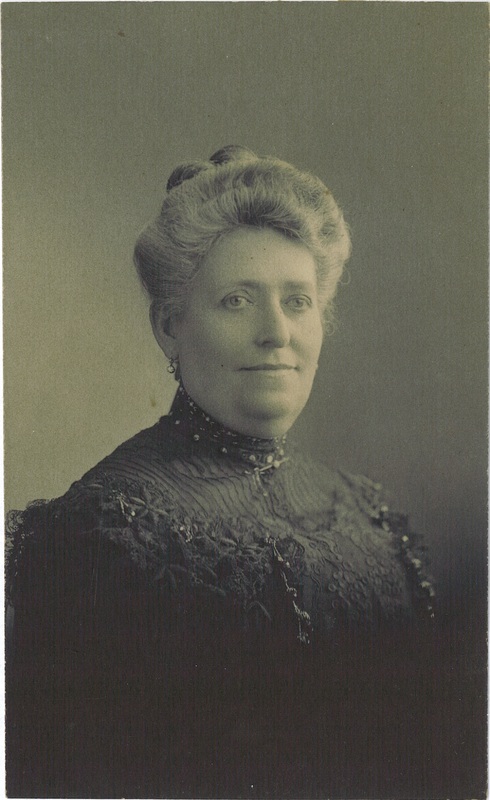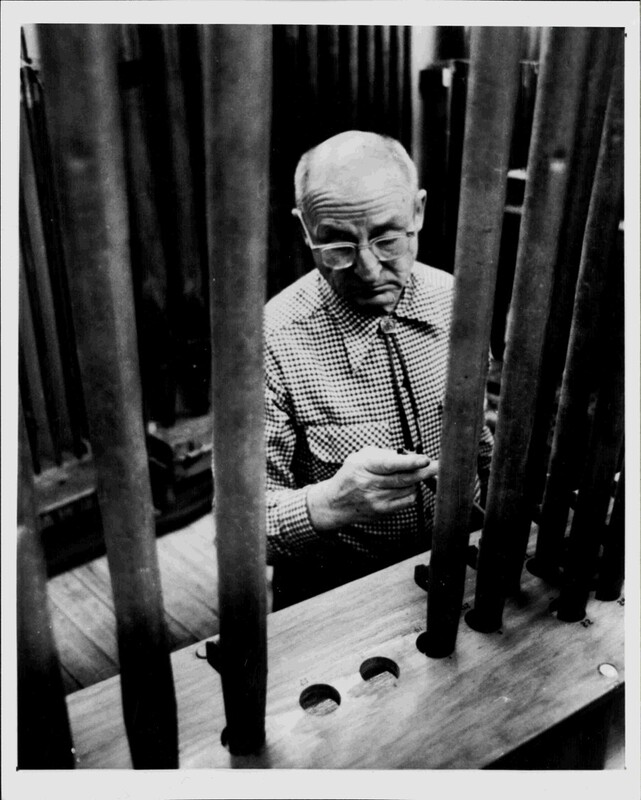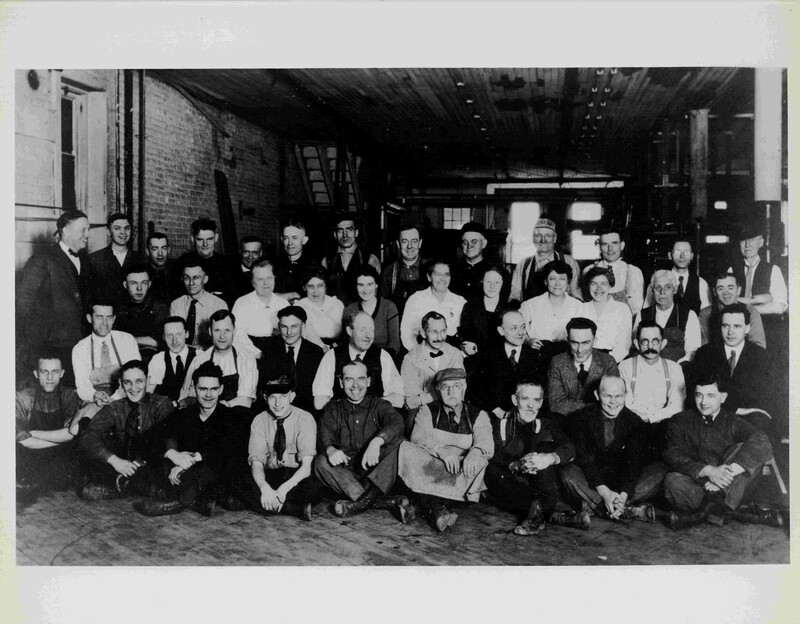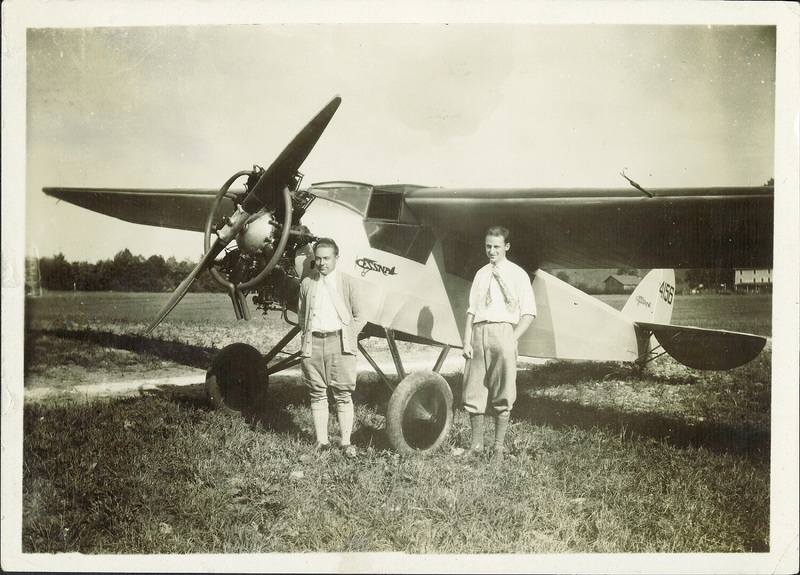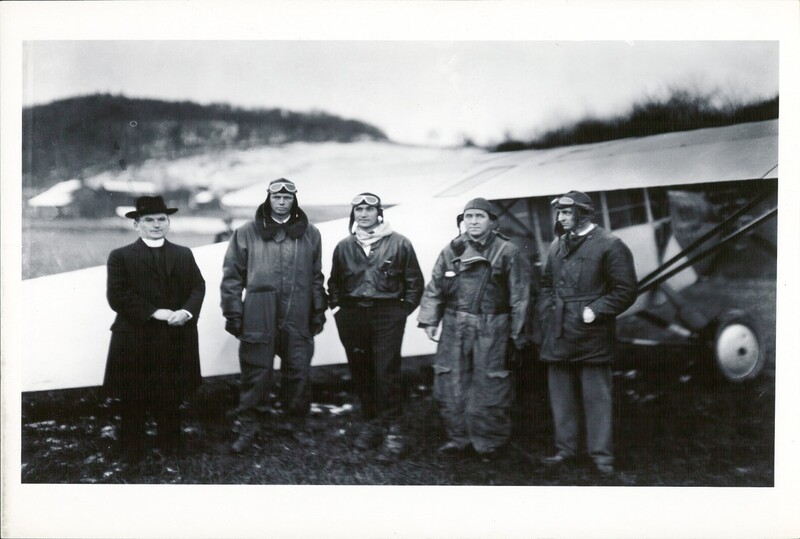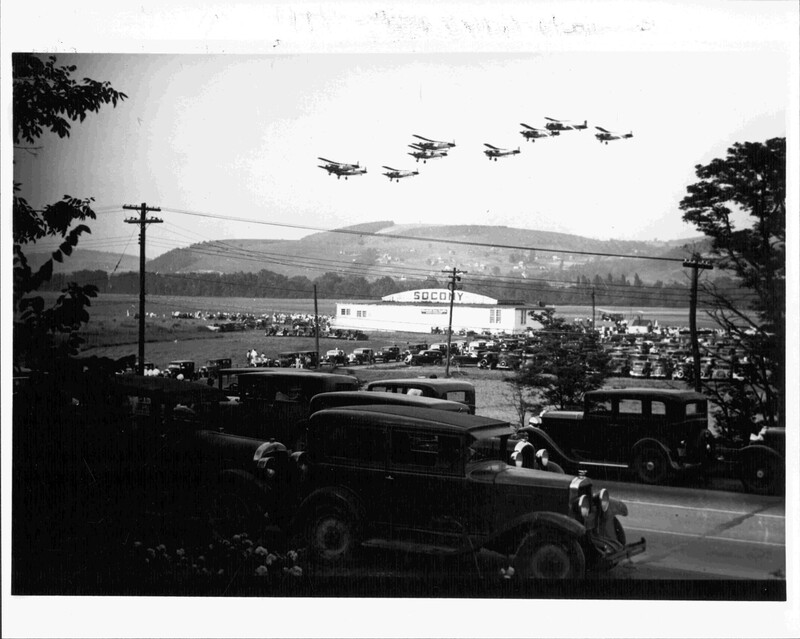Early Life & Learning to Fly
Jump to Early Life | Learning to Fly
Edwin A. Link, Jr., was born in 1904 in Huntington, Indiana, second son to Katherine and Edwin Link. When Ed was six years old, his father was appointed to a position at the Automatic Music Company in Binghamton, New York, to save the struggling business. The Link family moved to Binghamton where Ed would soon discover opportunities to hone his mechanical talents. Several years later, the senior Link would file for his own business: the Link Piano and Organ Company, Ed's eventual and simultaneous proving ground and playground.
Growing up, Ed rarely felt satisfied with standard academic work. Although Link was highly intelligent and extremely creative, Link drifted between various traditional and trade schools. Ed's older brother, Theron, had followed in their father's footsteps, and Ed Link, Sr. expected his youngest son to do the same - but Ed was more interested in working with his hands than sitting behind a desk. After a short tour of Europe at his mother's side, and attempting one last time to rally for a traditional education, he finally dropped out of Binghamton High School in 1922 to work at his father’s company.
"When my father heard I started to fly he threatened to disown me, but I, like many youngsters, was stubborn."
From Sky to Sea: A Story of Edwin A. Link, Susan van Hoek with Marion Clayton Link (10)
Ed Link flew for the first time when he was 16 years old. While visiting his mother in Los Angeles, Ed went up with an instructor in a tiny Curtiss Jenny biplane. He never even touched the controls - he sat behind the pilot, experiencing the sharp banks and heart-stopping stalls of the plane as they hurtled through the sky. Yet, Ed walked away from this first flight determined to become a pilot, no matter how much his father disapproved.
This was the age of barnstorming: an era when civilian stunt pilots captivated the country by performing perilous stunts in the air. Link was friendly with several barnstormers, and he traded menial work like taxiing their planes down runways for lessons on flying and navigation. His determination to fly outmatched his father’s disapproval, who even (temporarily) fired him from the Organ and Piano Company to convince him to stop. Still, Link was hired back because of his expertise, and filed a patent in 1924 for a method of cleaning pieces of the player pianos. He continued to devoted his time between the family business, flying, and nurturing several hobbies, including photography.
